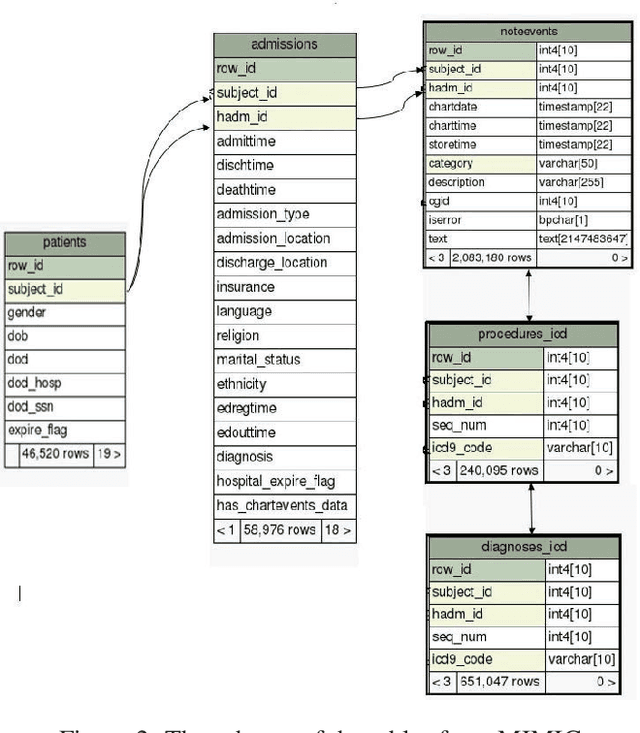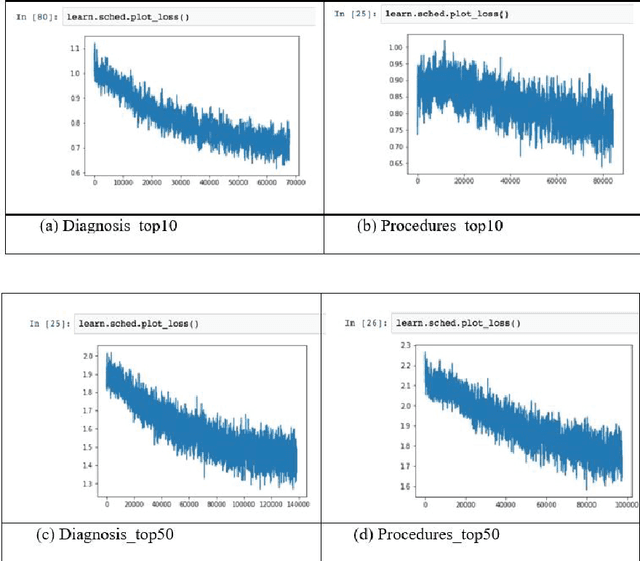Natural language processing of MIMIC-III clinical notes for identifying diagnosis and procedures with neural networks
Paper and Code
Dec 28, 2019



Coding diagnosis and procedures in medical records is a crucial process in the healthcare industry, which includes the creation of accurate billings, receiving reimbursements from payers, and creating standardized patient care records. In the United States, Billing and Insurance related activities cost around $471 billion in 2012 which constitutes about 25% of all the U.S hospital spending. In this paper, we report the performance of a natural language processing model that can map clinical notes to medical codes, and predict final diagnosis from unstructured entries of history of present illness, symptoms at the time of admission, etc. Previous studies have demonstrated that deep learning models perform better at such mapping when compared to conventional machine learning models. Therefore, we employed state-of-the-art deep learning method, ULMFiT on the largest emergency department clinical notes dataset MIMIC III which has 1.2M clinical notes to select for the top-10 and top-50 diagnosis and procedure codes. Our models were able to predict the top-10 diagnoses and procedures with 80.3% and 80.5% accuracy, whereas the top-50 ICD-9 codes of diagnosis and procedures are predicted with 70.7% and 63.9% accuracy. Prediction of diagnosis and procedures from unstructured clinical notes benefit human coders to save time, eliminate errors and minimize costs. With promising scores from our present model, the next step would be to deploy this on a small-scale real-world scenario and compare it with human coders as the gold standard. We believe that further research of this approach can create highly accurate predictions that can ease the workflow in a clinical setting.
 Add to Chrome
Add to Chrome Add to Firefox
Add to Firefox Add to Edge
Add to Edge